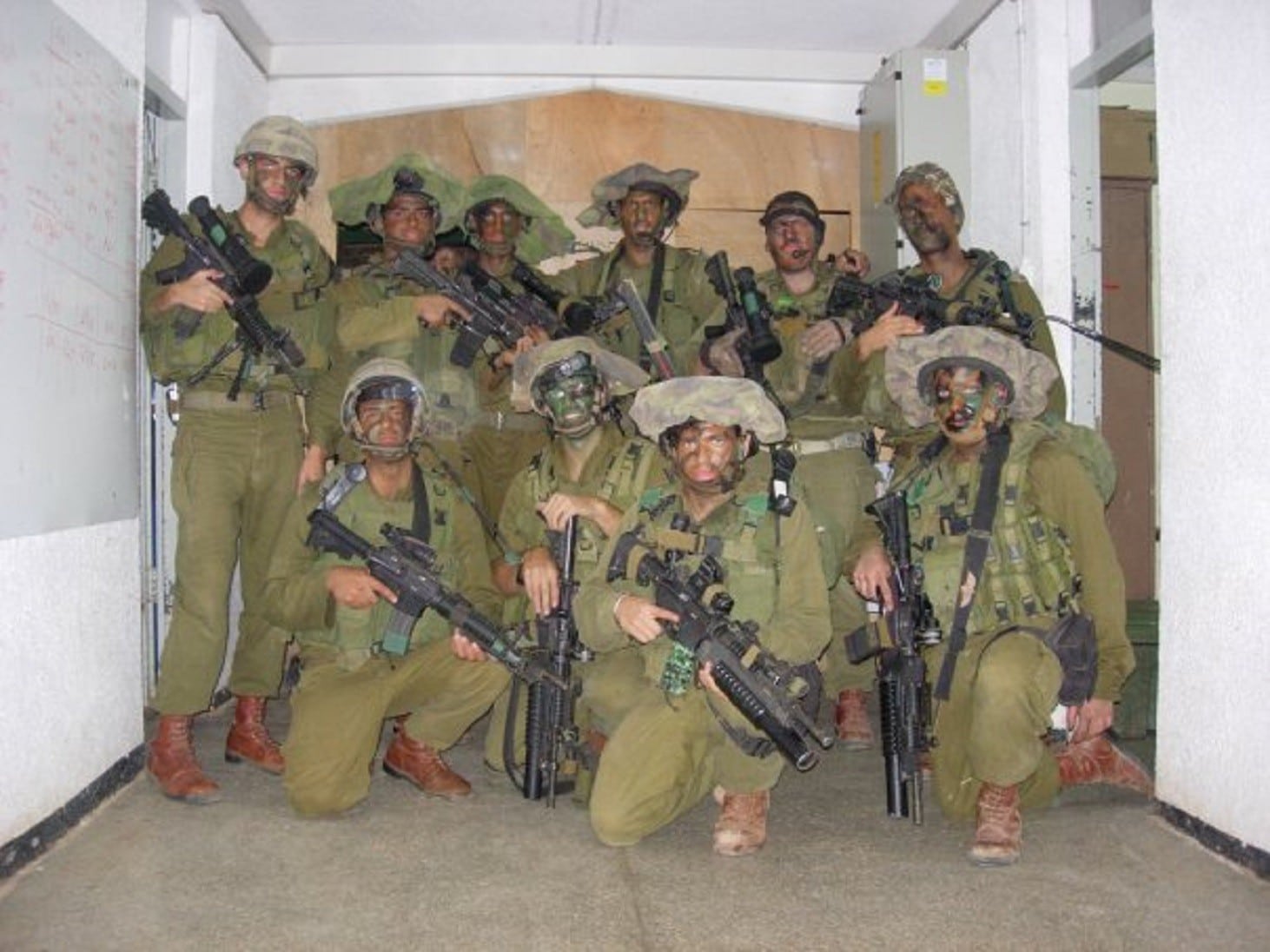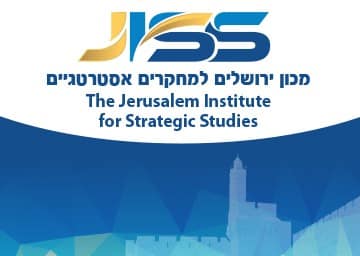תוכנית מדינית-ביטחונית חדשה של JISS גורסת שיש להימנע מהרפתקאות מדיניות מסוכנות ולהתכונן למלחמה.
מחבר: דוד וינברג
בשעה חשוכה הרבה יותר בהיסטוריה היהודית, טרם ההצבעה באו”ם ב-1947, אמר דוד בן-גוריון: “איננו שוגים באשליות, אבל אל ייאוש. עלינו היהודים, וביחוד עלינו הציונים, אסורים שני דברים: אופטימיות קלה ופסימיות עקרה”.
המימרה “ללא אשליות וללא ייאוש” היא כותרתה של תוכנית המדיניות הביטחונית שיפרסם בשבוע הבא מכון ירושלים לאסטרטגיה ולביטחון (JISS).
בבסיס ארבע עשרה ההמלצות המדיניות הקונקרטיות של התוכנית עומדת ההנחה שישראל צריכה להיות מוכנה למלחמה בשלוש חזיתות נגד קואליציה בראשות איראן. משמעות הדבר היא בלימת התהוותה של מכונת מלחמה איראנית בסוריה ובסיסי טילים איראניים ארוכי טווח בעיראק; הפגנת יכולת שרירה לפגוע במטרות הגרעין האיראניות ולעמוד במלחמת טילים עזה; הכנת כוחות קרקע המסוגלים לתמרן במהירות ולהשיג תוצאות מכריעות בשתי הזירות הפלסטיניות.
כל אלה יעמידו במבחן את הלכידות הלאומית שלנו, את עוצמתו של צה”ל ואת כושר התמרון של הדיפלומטיה הישראלית. משום כך, אומרים עמיתי JISS, הממשלה נדרשת להשיב רוח של אחדות וייעוד לאומי באמצעות בניית קונצנזוס מדיני רחב ככל האפשר.
בין היתר זה אומר הימנעות מהרפתקאות מדיניות מסוכנות כמו נסיגות חד-צדדיות מחלקי הגדה המערבית, מהלך שיקרע את העם ללא צורך וללא הצדקה, ויזין את הציפיות הלא-מציאותיות של הפלסטינים ללא תמורה מדינית של ממש מבחינת ישראל.
“ניהול הסכסוך עם הפלסטינים ללא הגבלת זמן אינו בבחינת בחירה פחדנית של מנהיגים פוליטיים וצבאיים חסרי אונים, אלא בחירה רציונלית”, כותבים עמיתי JISS. “במיוחד בעת שהאתגר האיראני מתנשא גדול מתמיד מעל אופקיה של ישראל”.
לזאת אוסיף: ניהול שקול של סכסוכים מחייב יד יציבה על הגה השלטון וביטחון עצמי בצדקת האינטרסים ארוכי הטווח של ישראל. אך יותר מכול, הוא דורש סבלנות.
באשר להחלת החוק הישראלי על ההתנחלויות ביהודה ושומרון, גם כאן קוראת התוכנית של JISS לאיפוק. “אין לנקוט כל פעולה עד למיצוי יוזמת השלום של ממשל טראמפ, וגם אז צריכים המהלכים של ישראל לדבוק בקווי הקונצנזוס הלאומי הרחב” (הווה אומר גושי ההתנחלויות, בקעת הירדן ואזורי מפתח אסטרטגיים אחרים).
היוצאת מן הכלל הזה היא ירושלים. ביטחונה הלאומי של ישראל מחייב שליטה על ירושלים והמרחבים שסביבה. חיזוק ירושלים צריך לעמוד בעדיפות גבוהה, ועל הממשלה לפעול לביסוס הרוב הציוני בעיר באמצעות בנייה נרחבת באזור E1 (למרות ההתנגדות הפלסטינית והאירופית) וחיבור העיר למעלה אדומים, ולבסוף גם לבקעת הירדן.
התוכנית ממליצה גם להנהיג ממשל תקיף והוגן יותר בחלקים הערביים של העיר. משמעות הדבר היא שיש לנקוט פעולה נחושה נגד גורמים קיצוניים המבקשים לשנות את הסטטוס קוו בהר הבית ונגד גורמים זרים (כמו טורקיה והאיחוד האירופי) המערערים על ריבונותה של ישראל בבירתו ההיסטורית של העם היהודי. יחד עם זאת, על הממשלה לעודד ולקדם את שילובם של ערביי ירושלים המזרחית בחיים האזרחיים באמצעות השקעה בתשתיות ובחינוך.
עמיתי JISS טוענים שישראל צריכה לברך על מה שמכונה “עסקת המאה” שתציג בקרוב וושינגטון, ולהסכים לנהל משא ומתן על בסיס קווי היסוד שלה. הסיבה לכך פשוטה: יש לקוות שתוכנית טראמפ תגבר על “החוכמה המקובלת” המיושנת בנוגע לסכסוך הישראלי-פלסטיני (תפיסה המכונה “כולם יודעים” לשלום הישראלי-פלסטיני על בסיס מתווה קלינטון), ותציע קווי מתאר ריאליסטיים יותר. כך או כך, ישראל צריכה להיות מוכנה להידרדרות במצב הביטחוני אם, כפי הצפוי, תדחה המנהיגות הפלסטינית את היוזמה האמריקאית.
במסגרת המלצותיה בתחום המדיני והביטחוני קוראת התוכנית של JISS לתעדף את היחסים עם מצרים וירדן במקביל לחיפוש שותפויות חדשות בעולם הערבי; להציב תג מחיר על הפרובוקציות של ארדואן ולבסס את שיתופי הפעולה במזרח הים התיכון; לשמר את התמיכה האמריקאית הדו-מפלגתית בישראל; לקיים דיאלוג פעיל וערוצים למניעת חיכוך עם רוסיה; לפעול באומץ כדי למצוא באירופה עוגנים שיסייעו בנטרול העמדות העוינות בחזית בריסל; לפסוע בזהירות בינות למתחים הצומחים ועולים באסיה; להרחיב את ארגז הכלים הדיפלומטי.
הנקודה האחרונה דורשת הרחבה. עמיתי JISS נותנים לראש הממשלה נתניהו ציון גבוה מאוד על השיפור הניכר במעמדה הדיפלומטי של ישראל בעולם, ובכלל זה הידוק הקשרים עם רוסיה, סין, הודו, מדינות מזרח אירופה ומחוזות באפריקה ובדרום אמריקה. אבל ניצול ההזדמנויות הנקרות לישראל בזירה הבינלאומית מחייב חיזוק של שירות החוץ המקצועי.
מגמה זו צריכה לכלול מינוי שר חוץ במשרה מלאה; החזרת יחידות מקצועיות שפוזרו בין משרדים אחרים; הקצאת תקציבים נוספים למאמץ הדיפלומטי; הגדלת המרכז לשיתוף פעולה בינלאומי של משרד החוץ (מש”ב) (סוכנות הסיוע הלאומית של ישראל) ושילובם של ארגוני סיוע וולונטריים ישראליים (ויהודיים) ביוזמות סיוע בחו”ל; הכשרת אנשי מקצוע שיוכלו לתקשר עם הקהל הקשוב היום הרבה יותר בעולם הדובר ערבית.
מכון ירושלים לאסטרטגיה ולביטחון הוקם בשנת 2017 מתוך כוונה לתת ביטוי להשקפת עולם אסטרטגית ריאליסטית. המכון מעודד את הקשר ההיסטורי של העם היהודי לארץ ישראל כ”מרכיב מרכזי בתפיסה הביטחונית ובזהות הלאומית” ומקדם “מדיניות פרגמטית שתשמור על ישראל חזקה ותוביל בטווח הארוך להסדרים מדיניים יציבים”.
עם הצוות המוביל של המכון נמנים פרופ’ אפרים ענבר, אלוף (מיל’) יעקב עמידרור (עמית בכיר ע”ש אן וגרג רוסהנדלר), אלוף (מיל’) יאיר גולן, אלוף (מיל’) ד”ר ערן לרמן, גב’ מיקי אהרונסון, ד”ר דוד קורן, ד”ר יהושע קרסנה, ד”ר יוסי מנשרוף, ד”ר עמנואל נבון, ד”ר עוזי רובין, ד”ר יונתן ספייר, אני ואחרים.
לתחושתי, הציבור הישראלי מייחל זה מכבר לפרשנות מומחים שתיתן משנה תוקף לתחושות הבטן הבריאות והשמרניות שלו בענייני מלחמה ושלום. מכון ירושלים לאסטרטגיה ולביטחון הוא התשובה לצורך זה. לאור זאת, אין תמה שמילת המפתח בתוכנית הביטחון הלאומי של JISS היא זהירות.
ישראל היא מדינה חזקה ומעמדה האסטרטגי טוב מתמיד. יחד עם זאת היא עומדת בפני אתגרים ביטחוניים לא מבוטלים, בעיקר מצד המשטר האיראני ושלוחותיו, בד בבד עם עימות אלים ובלתי פתיר עם הפלסטינים. על כן צה”ל צריך להיות ערוך למלחמה. זהו גם המבחן העליון של החברה הישראלית.
סדרת הפרסומים “ניירות עמדה” מטעם המכון מתפרסמת הודות לנדיבותה של משפחת גרג רוסהנדלר.
תמונה: [Israelsoldier at en.wikipedia [Public domain










 - בניית אתרים
- בניית אתרים